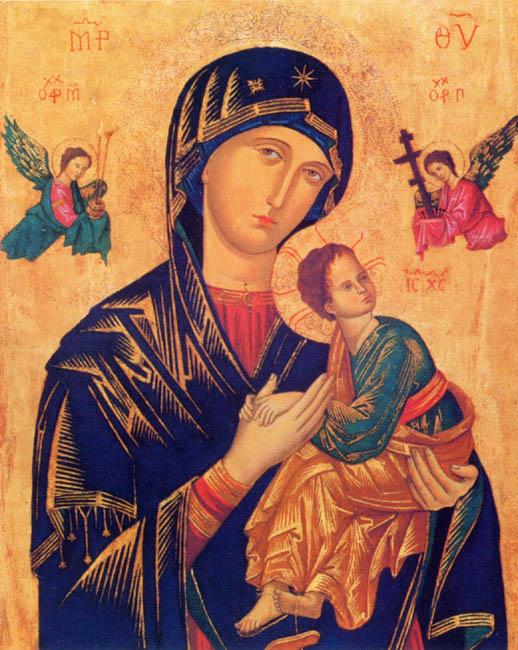FINDING MARY IN THE SCRIPTURES
Fr. James McMillan, SMM
FINDING MARY IN THE SCRIPTURES
An article in America magazine reminds us that, since so many non-Catholics think highly of our Blessed Lady.
“. . . Mary may actually be an asset to ecumenism instead of a liability. ” Anyone with even the slightest experience in ecumenical work can certainly bear out the truth of that statement. The Blessed Virgin Mary never was an obstacle to genuine ecumenical relations between Protestants and Catholics.
The main difficulty noted by non-Catholics in discussions on the role of Our Lady is that they somehow assume without much proof that Catholic devotion to Mary is “un-Biblical.” By that they mean that we Catholics ignore the Bible and what the Bible has to say about her role in the life of Christ. They point out that we believe such “un-Biblical” dogmas as the Immaculate Conception and the Assumption.
CHRISTIANS MUST UNDERSTAND THE BIBLE AND THE CHURCH’S TEACHINGS
There could be some element of truth in this assertion. But, for the most part, the so-called Catholic “ignorance of the Bible” is definitely exaggerated. This writer has come across considerably more “ignorance of the Bible” among Protestants, especially in matters that deal with our Blessed Lady.
The fact remains, however, that we Catholics can never . . .
. . . have too much knowledge of the Scriptures. The Church – particularly Vatican Il and the American bishops – encourages all of us to deepen our understanding and appreciation of the Word of God as manifested to us in the Bible. And it is especially important for Catholics to be familiar with what the Bible tells us about Our Lady’s role in the work of salvation.
“The Church,” said Vatican Il, “has always venerated the divine Scriptures just as she venerates the Body of the Lord, since from the table of both the word of God and the Body of Christ she unceasingly receives and offers to the faithful the bread of life . . .”.
What the Church expects of us, then, is that we venerate the Word of God in the Scriptures as we venerate the Body of the Lord in the Holy Eucharist. The more we know and understand the Eucharist, the more will we appreciate the great mystery of the Blessed Sacrament. And the same is true of our appreciation of the Word of God as revealed to us in the Bible.
VENERATE THE WORD OF GOD AS WE VENERATE THE LORD IN THE HOLY EUCHARIST
It is true, however, that the first impression most people get when they set about a serious reading of the Bible is one of puzzlement and frustration. They believe that, as with any other book, they should start right at the beginning and read all the way through. So, they open up the Bible to the Book of Genesis and soon get lost in a welter of apparent irrelevancies, like the seemingly interminable lists of “who-begat-whom.” The result is, of course, a feeling of discouragement about the whole notion of reading the Scriptures.

Our Lady of Perpetual Help (at least 1499, and likely significantly older)
Our Lady of Perpetual Help is a Catholic title of the Blessed Virgin Mary as represented in a celebrated 15th-century Byzantine icon. The icon may be first traced back to Rome where it has been since 1499.
And the message is this: the story of the salvation of the human race told to us by these ancient writers under the inspiration of God Himself. The authors of the Bible wrote in their own languages, with their own literary styles, in accordance with their knowledge of the times. Still, it is God speaking to us through them, gradually revealing the plan of His redemption of fallen mankind.
Return to The Queen: Articles
So, for the next few articles / publications, a few hints about how to read the Bible might be in order.
The first thing to remember is that the Bible is not one book. It is a collection of books, composed by different writers over a period of centuries. These books were all written by people whose language and culture were vastly different from ours. They lived in places far remote from us, and their writings reflect customs and attitudes that bear little resemblance to those of the Western world.
Some mental adjustment, of course, will be necessary for an understanding of what these writers are telling us. But this is not an insurmountable problem. You don’t have to be an expert in history or rush out and learn the ancient languages and customs of the East in order to grasp the message that God gives us in the Bible.
THE BIBLE TELLS US OF THE STORY OF SALVATION
And the message is this: the story of the salvation of the human race told to us by these ancient writers under the inspiration of God Himself. The authors of the Bible wrote in their own languages, with their own literary styles, in accordance with their knowledge of the times. Still, it is God speaking to us through them, gradually revealing the plan of His redemption of fallen mankind.
The emphasis throughout the Bible is on God’s fidelity to His promise of salvation after the fall of Adam and Eve. This fidelity of God is starkly contrasted with our human weakness, our frailty, our forgetfulness, our sinful nature, our failure to live up to what God expects of us. The Bible is an account of God’s infinite love and forgiveness. It is the story of our continual straying away from God and His repeated attempts to bring us back to Him.
It does call for some effort on our part in order to deepen our understanding of the ways of God and man. But please be assured that the effort is more than worthwhile.


